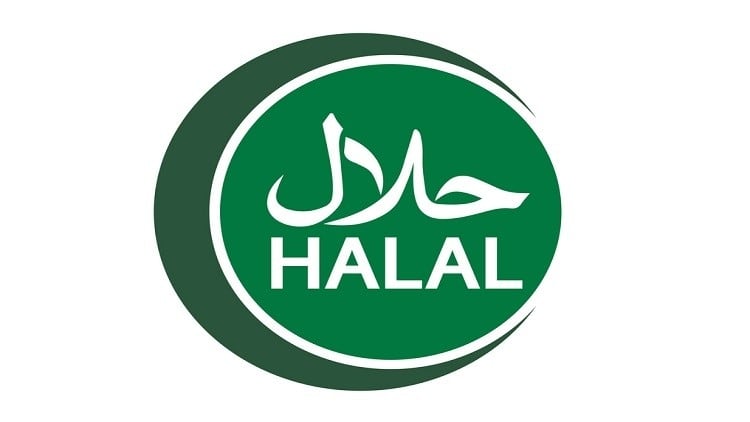Background
A report by Google, Temasek, and Bain & Company pointed out that within the region, Indonesia and Vietnam have the highest percentage of respondents who said that they wanted to use more of e-commerce.
The report, titled ‘e-Conomy SEA 2022’, looks at how the digital economy sectors are tracking across six SEA countries, namely Indonesia, Malaysia, the Philippines, Singapore, Thailand, and Vietnam.
In Indonesia, 32 per cent of the respondents said they intended to use e-commerce more in the next 12 months, while 30 per cent of respondents from Vietnam said so.
Source: e-Conomy SEA 2022
On the other hand, the report asserted that sustained growth for the digital economy, including e-commerce, travel, food and transport, and online media, was expected, with Vietnam and the Philippines seen as the forerunners going forward.
The outlook and what’s driving e-commerce growth
The popularity of e-commerce has also led to the rise of e-commerce enablers – companies that provide end-to-end solutions for consumer brands to do e-commerce business.
This could include official store management, digital marketing, supply chain management and fulfilment.
Thailand-based CREA is one of the e-commerce enabler firms active in Thailand, Malaysia, and Singapore.
Speaking to NutraIngredients-Asia, Aimone Ripa di Meana, founder and co-CEO of CREA, described Thailand as a big market for e-commerce, and especially so for the international brands.
“From our time here in SEA over the last 10 years, Thailand is the most significant market for branded products online.
“It's a market where the consumer is very careful to buy international brands, very eager and very open to international brands,” the former chief operating officer based in Lazada Group’s Singapore office said.
Recently, we reported that CREA was partnering Haleon in beefing up the digital presence of the latter’s consumer health brands, including multivitamin brands Centrum and Caltrate.
For instance, CREA would help drive demand, generate content, sales and consumer data to better manager supply chain and respond to changes in consumer demand.
“Malaysia and Singapore also represent markets that are very open to international brands are looking outwards both to the West and East for brands to help improve their daily lives.
“So, these are the markets today that we're focusing on to enable brands to either enter the market directly, help them import their products, to branding and launching their products, or supporting brands that are live in the market and are looking to grow their digital presence.
“The main cities are really the core of the premium consumption.”
South East Asia is a highly watched region for e-commerce, not only because the vast majority of the population are active internet users, but also because of an increasingly strong internet and logistic infrastructures that have been developed over time, di Meana explained.
“All of SEA is going through digital revolution and all these markets are seeing great growth in this segment.
“I think what varies typically by market is the payment network, it's the country's openness to cross border trade and ability and ease of importing and introducing new products as well as consumers openness.”
In terms of consumers openness, he gave the example of Indonesia, where consumers would prefer local brands, especially for halal beauty and FMCG products, as opposed to the preference for international brands in Singapore, Malaysia, and Thailand.
Social media, especially Facebook and Instagram, could be used to promote niche products, since they could serve as an educational platform for consumers to learn more about the offerings, before deciding to purchase the products.
“All markets in SEA also have in common that they are very active on social media platforms. And online has allowed the consumption of particular set of niche products that might not have happened in the past.
“Health is a trend that is here to stay. For a number of our leading brands, Thailand is the top market in their portfolios. We have seen a lot of investments in our core markets in introducing new products, new lines, but also marketing investment in the market.”
Another company that has found success in Thailand’s digital space is Brand’s Suntory.
In the 11.11 shopping event last year, Brand’s was the second best-selling brand under the Health and Wellness (Dietary) category on e-commerce platform Shopee, only behind Ensure by Abbott.
Working with aCommerce – also an e-commerce enabler firm, Brand’s Suntory has built online stores for selling its flagship product, Essence of Chicken, on marketplaces such as Lazada, Shopee, as well as social commerce platforms such as TikTok and Line.
Alisa Techawongwattana, head of E-Commerce of Suntory Beverage & Food (Thailand), said the partnership has leveraged Suntory’s data of current customers to capture new audiences, expand its customer base, and increase basket size.
Other than Essence of Chicken, the product assortment has also expanded to include Brand’s Bird’s Nest and Veta Berry beverages.
What’s trending?
In the case of Singapore, some of the popular nutrition products are infant formula and sports nutrition products, according to e-commerce marketplace Amazon Singapore.
The platform started its operations in Singapore – its first in SEA – with the launch of its delivery service Prime Now in 2017.
“Some of our bestselling health and nutrition products on Amazon.sg include NESTLE NAN OPTIPRO 4 Growing Up Milk Formula, Optimum Nutrition Gold Standard Whey Extreme Milk Chocolate, as well as items such as organic fruits & vegetables,” Leo Laforgia, Amazon Singapore’s Country Manager, said in response to queries from NutraIngredients-Asia.
One of the latest brands that the platform has onboarded was Little Farms which makes granola, kombucha drinks, fruits and vegetables, meat, nut and cold pressed juice.
The products have been made accessible to Amazon Prime members on Amazon Fresh & Fast, where users will be able to receive their online purchase in as soon as two hours.
Using social commerce for deeper engagement
Instead of merely acquiring new consumers, brands are also focusing on boosting consumption frequency and value from existing consumers – a trend highlighted in the ‘e-Conomy SEA 2022’ report.
“With digital adoption maturing, understanding usage behaviour across consumer segments is necessary to unlock incremental headroom for growth.
“The majority of digital players are shifting priorities from new customer acquisition to deeper engagement with existing customers,” said the report.
Boosting consumption frequency, value, and loyalty of existing users, has become a priority especially as average orders remain small at US$10 to US$15 each, the report highlighted.
In terms of consumer engagement, new findings from Shopee found that three in four consumers from Malaysia prefer to learn about new products and solutions to their day-to-day problems through tutorial videos made by influencers.
This is based on its report “Future of E-Commerce with Malaysian Influencers 2022”.
It analyses the findings of a survey which took place between September 28 and October 26, where feedback was obtained from 2,459 Malaysian buyers.
A breakdown of the statistics showed that 41 per cent of the respondents believe that watching influencer tutorials is “an affordable and effective solution”, 18 per cent said they “felt empowered by the influencers’ similar interests”, while 16 per cent said that “influencers were the primary source to help with a problem”.
When it comes to content sharing, short-form mobile videos sharing platform TikTok is undoubtedly a popular platform for influencers and key opinion leaders.
To merge content and commerce into one, TikTok launched its TikTok Shop feature in Indonesia since April 2021, which has now expanded to other SEA countries, including Thailand, Vietnam, Malaysia, Philippines, and Singapore.
The products are recommended to users via in-feed videos, livestreaming, and a product showcase tab featured on sellers' TikTok profile page.
“As more people shop online, TikTok Shop presents the ultimate convergence of content and commerce with unique Shoppertainment experiences for all," said Ng Chew Wee, Head of Business Marketing, APAC of TikTok.
di Meana believes that the platform is especially relevant to the health and beauty sectors where expert advice is highly valued.
“I think in the health and beauty sectors, where people are looking for advice from people they look up to, or from the experts to tell them about their routine, TikTok is one of the channels that is really going to help drive the growth of these categories online,” he said.
Not only consumer brands but also retailers are driving consumer engagement through TikTok.
Last year, health and beauty retailer Watsons Malaysia launched the SuperKakiWatsons campaign aimed at promoting its in-house products ranging from personal care to supplements.
One will only need to record a video of them reviewing the product, explain why they are the ultimate content creator and upload the video to Instagram or TikTok.
What more to improve on?
With challenges arising from supply chain disruptions and high inflationary pressure, a tip for brands moving forward in e-commerce is to improve the efficiency of operations.
di Meana pointed out that the e-commerce sector has been affected by inflation, supply chain shocks especially in 2022, in turn causing brands to reduce their marketing budget to counter the pressure of financial crunch.
The e-commerce marketplaces have also adopted a stronger focus on cost control than on customer acquisition and investment.
“This has forced everyone in the market to rethink how they can become more efficient, more resilient online as compared to the previous years – which was more focused on growth and customer acquisition.
“I think this ushers in a new era of how we operate on e-commerce, which is going to be a lot more structured, a lot more scalable, and the players that are going to win are those that are best prepared with their infrastructure, technology, and capabilities.”
On the other hand, since e-commerce platforms have unlimited capacity to take on new products and brands, he added that what would differentiate brands from one another, would be their ability to engage with consumers on the platform, and being operationally competent.
“The more active your brand is on the platform, the more likely the algorithm is going to direct consumers and traffic to your store.
“That means participating in the platform activities and activations, it means investing marketing money in the right channels, it means being operationally excellent, because consumers can now read everything about your brand service that your brand is offering.
“Operational excellence is now very visible to all consumers and becomes a key differentiator when consumers are picking between one brand or another on the marketplace.”



